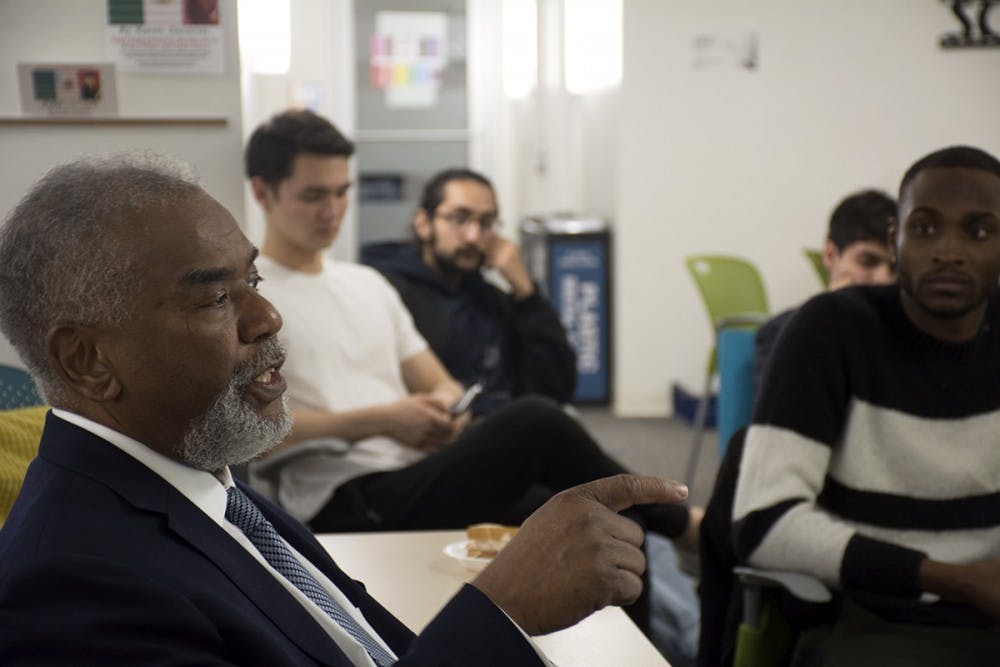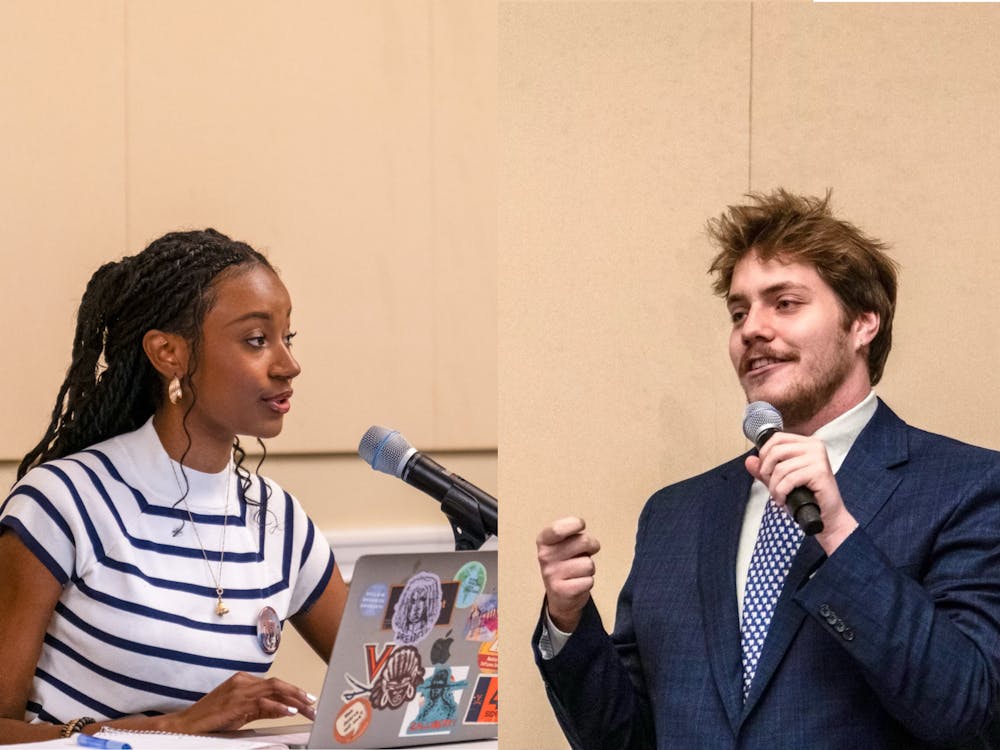Students gathered to hear Marcus L. Martin, University vice president and chief officer for diversity and equity, speak about his lifelong experiences in the context of his career and leadership in a talk at the Multicultural Student Center Monday. The event was hosted by the MSC as part of the “Things I Wish I Knew” series — an initiative for faculty to share personal experiences on their identity and background, their career path or field of work or another topic of their choosing.
Martin is a professor, the past chair of the Department of Emergency Medicine at the University and co-chair of the President’s Commission on Slavery of the University. He was appointed vice president and chief officer for diversity and equity in 2011.
Martin began his talk speaking about his origins in a small paper mill town in Virginia, eventually receiving a Pulp and Paper Technology scholarship to attend North Carolina State University where he was the first African-American student to play varsity football. He then double majored in pulp and paper technology and chemical engineering within five years, completing all the prerequisites for medical school. He was accepted to the first charter class of 24 students at Eastern Virginia Medical School in Norfolk, Va. After becoming the first black graduate from EVMS, he chose to enter Emergency Medicine, due to his draw towards the problem-solving element to the field.
“You have to know when to solve problems, quickly and using the science to solve the problems,” Martin said.
One formative experience Martin talked about was when a Navajo man brought a six-month old baby who showed signs of meningitis to the University hospital. Martin did not treat the baby out of respect for the Navajo man’s cultural norm rejecting the use of needles and therefore the suggested vaccination for the baby.
Martin said he recalled seeing the obituary for the child a week later and considered other options on how he could have treated the baby.
“Think outside the box, think outside of your own culture,” Martin said. “Meet the person at a different level, and maybe you can make a difference.”
Martin additionally introduced the idea of the President’s Commission on Slavery at the University to University President Teresa Sullivan in 2013. As co-chair of the commission, Martin discussed the design and progress of the commission’s major initiative — the Memorial to Enslaved Laborers. The target completion date for the Memorial is March 2019.
Martin said he hopes it will be completed by March 3, 2019, in honor of Liberation Freedom Day, which celebrates the ending of slavery in Charlottesville and Albemarle County.
Joan Lee, a third-year College student, Meriwether Lewis Fellow and incoming Senior Resident of the Lawn, is an intern at the Multicultural Student Center, and organized this specific event in conjunction with coordinating the year-long “Things I Wish I Knew” series.
“‘The Things I Wish I Knew’ series is basically aimed at striking down barriers between students and administrative faculty,” Lee said. “I started to figure out who students might really want to hear from, one of the first people I thought of was Dr. Marcus Martin … [He] has broken up so many barriers within his field.”
Lee has interacted with Martin on several occasions through her involvement in multicultural organizations, and chose him to speak due to his variety of accomplishments as an administrator, a professor and a researcher.
“He’s also … currently working on different initiatives [on] how to increase numbers of underrepresented minority students receiving math and STEM degrees,” Lee said. “He’s working at that at a statewide level.”
Third-year College student Joe Malasa had heard of Martin’s name many times, and was excited to hear him speak.
“I’ve grown up seeing leadership as being a very rigid idea, but seeing his talk today, hearing his own experiences … breaking those boundaries,” Malasa said. “That’s something I want to do with my life.”
Lee hopes students will start meeting University administrators through this talk and similar events.
“I really want to make sure, especially first and second years coming in, that … if they want resources from the Diversity and Equity Office, that they give a name to a face, and they’re not too intimidated,” Lee said. “I would just love to start creating those relationships.”






